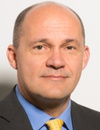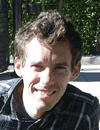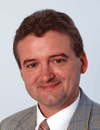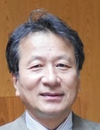|
Microfluidic Chemistry |
| |
09:00 |  | Keynote Presentation From Flow Chemistry in Vacuo to Supercritical Flow Reaction Environments
C. Oliver Kappe, Professor and Scientific Director, Center for Continuous Flow Synthesis and Processing, University of Graz, Austria
In this presentation the translation of flash vacuum pyrolysis protocols to solution-phase high-temperature/pressure flow reaction conditions will be presented, in many cases involving solvents in their supercritical state. |
|
09:30 | The Slow made Fast and the Dangerous made Safe: New Opportunities for Synthesis using Flow Chemistry
Thomas Wirth, Professor, Cardiff University, United Kingdom
The introduction of general platforms to perform reactions under continuous flow rather than in batch mode has led to improvements regarding safety and sustainability. A reduction in processing time and potential for manufacturing scale-out will be demonstrated using various examples. |
10:00 | Improving Organic Synthesis by Exploiting Flow Reactor Technology
Paul Watts, Distinguished Professor and Research Chair, Nelson Mandela University, South Africa
The application of flow reactors to efficiently optimise a range of different chemical reactions will be described. |
10:30 | Coffee and Networking in Exhibition Hall |
11:15 | The Regioselective Ring Opening of Epoxides with Sodium Azide in a Microreactor
Willem Verboom, Professor, University of Twente, Netherlands
The ring opening reaction of different types of epoxides with sodium azide to give vicinal azidoalcohols was investigated in a microreactor. The conversion and the regioselectivity strongly depend on the conditions used.
|
11:45 | Unusual Concepts for Microfluidic Chemical Applications
Holger Loewe, Professor, Johannes Gutenberg University Mainz, Germany
Since several years novel process windows are introduced for chemical (micro) flow processing. In combination with unusual concepts, e.g. processing in magnetic liquids, the use of MW under flow conditions to avoid hot-spots, or spray techniques, a push towards process intensification can be achieved additionally. |
12:15 | The Future of Ultrasound in Formulating Nanoscale Pharmaceuticals
Avi Schroeder, Researcher, Massachusetts Institute of Technology, United States of America
Ultrasound is used in many medical applications. Ultrasonic devices are constantly advancing, becoming smaller and more precise. Specifically, Adaptive Focused Acoustics (AFA) is being used to aid formulation processes at the bench or on large scale. AFA can be utilized to reduce the size of drug crystals in solution from the micro- to nano-scale under continuous or batch modes. |
12:45 | Lunch Break and Networking in Exhibition Hall |
13:30 | Poster Session |
15:15 | Coffee Break and Networking in Exhibition Hall |
|
New Directions in Flow Chemistry |
| |
16:00 |  | Keynote Presentation Reaction Optimization in Flow
Neal Sach, Associate Research Fellow, Pfizer, United States of America
A flow technology is presented with the capability to run and analyze 100-300 reactions per day. The application of this technology to reaction optimization and library preparation is presented. |
|
16:30 | Self-Optimising Flow Reactors & Continuous Flow Chemistry in Supercritical CO2
Richard Bourne, Research Fellow, University of Nottingham, United Kingdom
This lecture will explore self-optimising continuous flow reactor systems utilising feedback control algorithms.
|
17:00 | Flow Chemistry under Ultrasound and Microwaves
Giancarlo Cravotto, Professor, University of Torino, Italy
Research laboratories and industries are involved in the search for new technology that may lead to process intensification. Our experience in flow reactors with ultrasound and microwaves confirmed the huge advantages of flow chemistry under non-conventional energy sources.
|
17:30 | Intensifying Processes with Miniaturized Devices
Jurgen Brandner, Professor, Karlsruhe Institute for Technology, Germany
The presentation will show advantages and draw backs of miniaturized equipment for process engineering. Starting with fundamental considerations, the focus will be set on design, manufacturing and heat transfer. Some examples of processes will be provided. |
18:00 | Drinks Reception |



